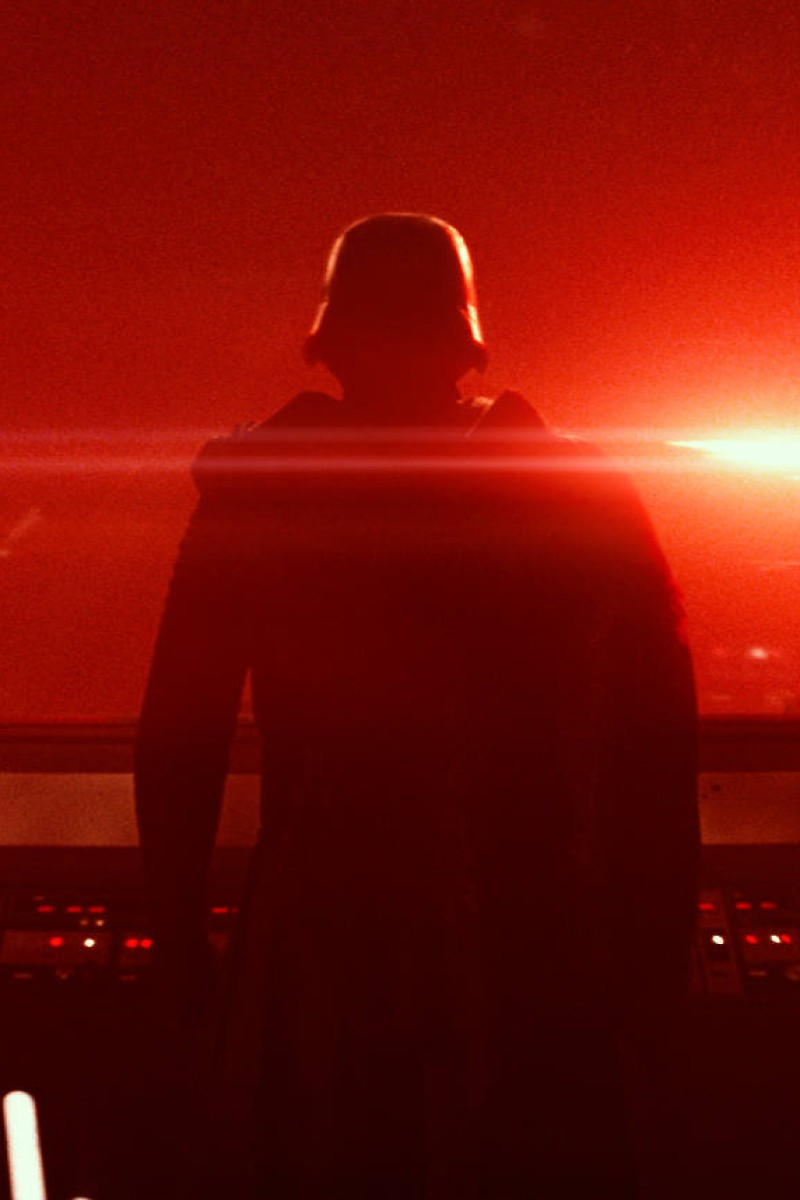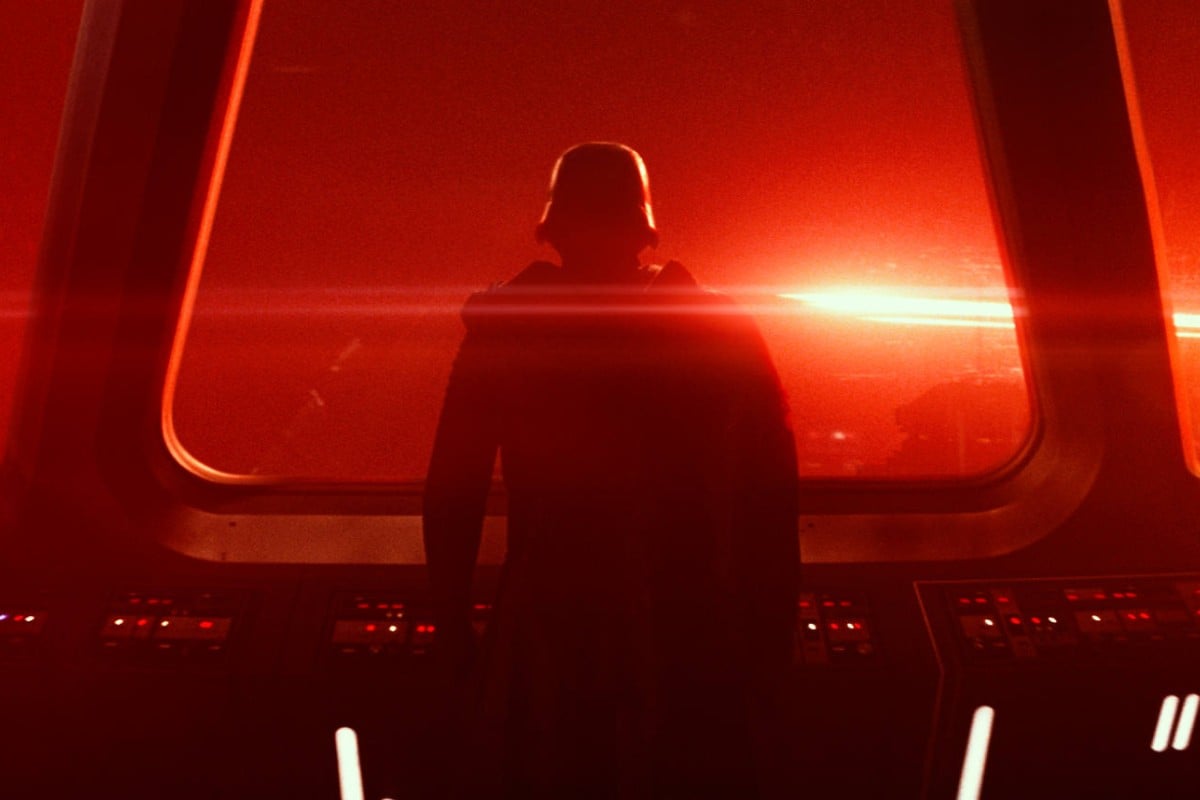
Star Wars is considered to be one of the best films ever. It was made on a tiny budget with little-known actors and, as far as special effects are concerned, set the bar for movies to come
 The Force Awakens introduces a whole new line-up of heroes and baddies.
The Force Awakens introduces a whole new line-up of heroes and baddies.News
Fans cheered Monday's highly anticipated Hollywood premiere of Star Wars: The Force Awakens as the space epic was screened under tight security.
Police cordoned off the area around the Hollywood cinemas hosting the premiere, setting up metal detectors and deploying scores of officers and sniffer dogs.
As the film stars walked the red carpet, fans - some who had camped out for days in their Star Wars costumes - went into a frenzy seeking autographs and pictures of the beloved movie characters.
"This is like the Academy Awards or something," said Harrison Ford, who plays Han Solo. Ever since 1977, when Star Wars introduced the world to the Force, Jedi knights, Darth Vader, Wookiees and clever droids R2-D2 and C-3PO, the sci-fi saga has built a devoted global fan base.
Premiere events will take place all over the world before the film officially reaches Hong Kong cinemas today.
The intergalactic tale of good versus evil, friendship, loyalty and love created a defining moment in the history of popular culture and launched one of the biggest movie franchises ever.
The original blockbuster turned Ford, Carrie Fisher and Mark Hamill - who play Han Solo, Princess Leia and Luke Skywalker - into stars overnight.
Much to the delight of fans, the beloved trio return in the new instalment - which picks up 30 years after the events of 1983's Return of the Jedi.
But The Force Awakens also brings a host of fresh faces, including John Boyega, Daisy Ridley, and Lupita Nyong'o.
The last film came out a decade ago - the final of a prequel trilogy that was less well-received than the original three films from 1977 to 1983.
Director J.J. Abrams had the daunting task of advancing George Lucas' tale, while trying to meet fans' expectations. So far, the plot of The Force Awakens - Episode VII in the franchise - remains a mystery.
Agence France-Presse
Issues
The best bad guy
At its heart, Star Wars is the simplest of stories, so simple that it is almost forgotten: Good vs Evil. It draws on all the good old stories of Westerns and kung fu movies, where the hero battles evil to save the day.
It also gives us the loveable rogue in Han Solo, played by Harrison Ford, but at the same time, it gave us the world's greatest villain in Darth Vader. He is the only villain who has anchored a trilogy, first as a baddie, then as good guy.
He embodies the idea of free will versus destiny, the nature of good and evil, nature vs nurture, and awkward father-son relationships. Before he entered the film, the audience knew very little about him. But, with George Lucas' magic, he becomes a striking figure immediately, his black costume an eye-catching contrast to the white of the storm troopers. His menace remains with the audience for the rest of the film, even though he is not actually on screen very much.
Star Wars introduced audiences to the concept of minions. The stormtroopers, mindless baddies that we know so well from Hunger Games, first saw light of day in Star Wars. Their identical, bright white costumes are clearly inspired by the Nazi storm troopers of the second world war.
This cleverly made them instantly identifiable and chilling, while at the same time a faceless force against which resistance was futile.
From zero, to magic
Who knew Star Wars would become such a cultural phenomenon? The film is almost 40 years old and even though so many film studios have tried to replicate its success, none have been able to. Lord of the Rings might have come close, but that is a matter for debate.
With six movies - the seventh coming out now - more than 50 video games, TV shows and comics, it has left a permanent footprint in the collective consciousness of the world. It had something for everyone, meaning it's a dream for merchandisers and brands looking to cash in on its success.
Like many star people, Star Wars had a rocky start. Lucas wanted to make the film and had a hard time convincing studios to back it. Finally he found an angel in Alan Ladd Jr of 20th Century Fox. But the rest of the bosses at Fox were not very supportive. They wouldn't even pay Lucas his director's fee, instead they "allowed" him to keep the merchandising and licensing rights for himself ... oops.
You won't believe your eyes
This film gave people familiar plot lines, coupled with things they had never seen before. It changed the way films were made and presented, and brought sci-fi into the mainstream.
Before Star Wars, sci-fi movies had always used Earth as a reference point. But Lucas threw that out of the window and gave his audience things they had never seen or imagined before. The only problem was that the technology required to create the space scenes hadn't been invented yet.
So Lucas founded Industrial Light and Magic (ILM), a company that remains at the cutting edge of special effects today.
ILM gave us Pixar, and even Photoshop, the graphics programme used by many artists and designers today.
Star Wars brought back the iconic opening score, which, instead of being played over the names of the actors and crew, was played as the script with the now famous "In a galaxy, far far away" rolled up the screen.
John Williams composed the score, which was played by the London Philharmonic. It went on to win many awards, including an Oscar, and led to the rebirth of orchestral film music.
The film also led to a rebirth of the Wilhelm scream - a sound effect that has been repeated often in films since; look it up for extra nerd points.
Speaking of sound, Star Wars was among the first movies to use Dolby Stereo (a long time ago, in a galaxy far far away, people saw movies where all the sound came from the front) and it was so successful that it encouraged smaller cinemas to convert to the system.
Staff writer
When George Lucas' Star Wars first landed in 1977, some critics were swept away, while others resisted the tide. A sampling:
Exhausting
"Star Wars ... is the writer-director George Lucas' own film, subject to no interference, yet it's a film that's totally uninterested in anything that doesn't connect with the mass audience.
There's no breather in the picture, no lyricism; the only attempt at beauty is in the double sunset.
It's enjoyable on its own terms, but it's exhausting, too: like taking a pack of kids to the circus ... It's an epic without a dream."
Pauline Kael, The New Yorker
Thumbs Up
"Star Wars taps the pulp fantasies buried in our memories, and because it's done so brilliantly, it reactivates old thrills, fears, and exhilarations we thought we'd abandoned when we read our last copy of Amazing Stories."
Roger Ebert, Chicago Sun-Times
Overwhelming banality
"Strip Star Wars of its striking images and scientific jargon, and you get a story, characters, and dialogue of overwhelming banality, without even a "future" cast to them.
Human beings, anthropoids, or robots, you could probably find them all, more or less like, that, in downtown Los Angeles today ... O dull new world!"
John Simon, New York magazine
Witty
"Star Wars ... is the most elaborate, most expensive, most beautiful movie serial ever made ...
One of Mr Lucas' particular achievements is the manner in which he is able to recall the tackiness of the old comic strips and serials he loves without making a movie that is, itself, tacky."
Vincent Canby, New York Times
Unexceptional
"The only way that Star Wars could have been interesting was through its visual imagination and special effects. Both are unexceptional ... I kept looking for an 'edge', to peer around the corny, solemn comic-book strophes.
"This picture was made for those [particularly males] who carry a portable shrine within them of their adolescence."
Stanley Kauffman, the New Republic
Rip-roaring gallop
"Star Wars is Buck Rogers with a doctoral degree ... a slam-bang, rip-roaring gallop through a distantly future world full of exotic vocabularies, creatures and customs ... with the boy and girl next door and a couple of friendly leftovers from the planet of the apes and possibly one from Oz - a Tin Woodman robot.
Charles Champlin, Los Angeles Times
Voices
Anyone who doesn't find the film entertaining is either lying or should be locked up.
South China Morning Post film reviewer Noel Parrott
The cultural influence of the six Star Wars films, plus the novels, comics, television shows, games, toys, spoofs and documentaries linked to "Star Wars", is such that, in the 2001 United Kingdom census, some 390,000 people stated their religion as Jedi, making it the fourth largest religion surveyed.
www.space.com
As for depth of plot line, Star Wars certainly didn't open new territory. "The story of Star Wars could be written on the head of a pin and still leave room for the Bible," said critic Vincent Canby of The New York Times.
Ted Kemp, CNBC
Star wars wasn't just one story. It was a universe full of stories.
Vox.com
"Always remember, your focus determines your reality."
George Lucas
Bonus Point
4.4 billion- Gross earnings in US dollars for the six-film Star Wars saga worldwide (so far ...)
WORD WATCH
Culture (noun)
Meaning: the ideas and artistic values of a particular time or place
Use it: Star Wars quotes are used all the time in popular culture.
Cultural (adjective)
Meaning: related to arts or customs of a particular society
Use it: Having more female roles in the new Star Wars films reflects a cultural change from the past few decades.
Cultured (adjective)
Meaning: having refined taste and good education
Use it: She thinks just because she's never seen Star Wars that makes her cultured and we're all just nerds - but she's missing out because Star Wars is awesome!
